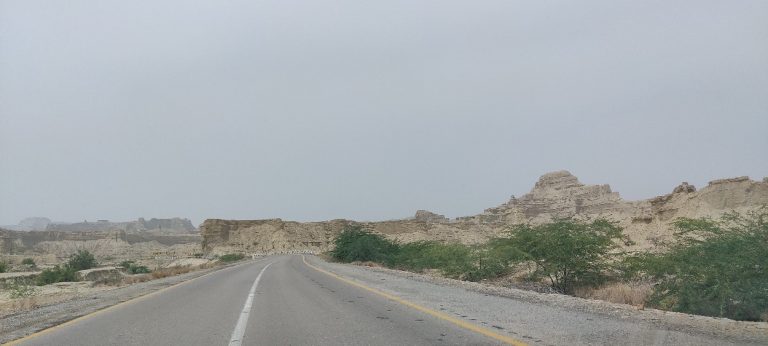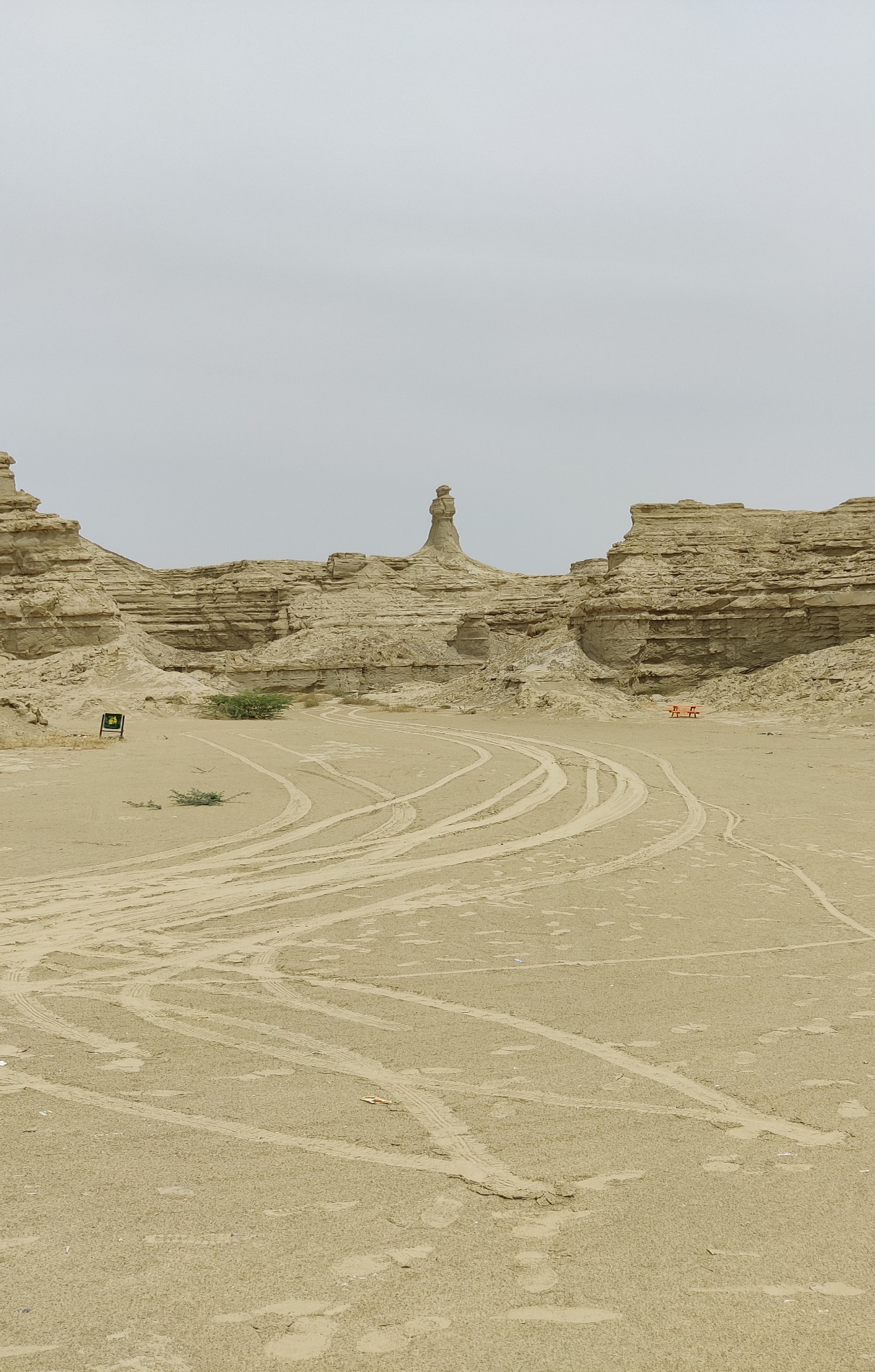
People live off trading Iranian fuel, rearing cattle, date farming and fishing. The distances are long and the life is hard in this area.
By Dr. Hanan Ishaque
Along the Arabian Sea, we headed into the vastness of Balochistan. A seemingly endless body of saltwater on the left stared at the plateau across the road while sandstone ridges played peek-a-boo with a barren stretch of plain as we tore through the scenic Makran Coastal Highway. The excitement about this 600 Km long road trip to Gwadar notwithstanding, the wilderness was intimidating, as described in James Blake’s words as, “There was nowhere you could hide in such emptiness.”
We were not just in awe of the stunning rock formations but also tried to imagine the difficult life of the people living in mud-houses in sparsely populated villages we drove by. Thinking about their hardships touched a chord with us and it steered the discussion into a whole different realm; from meaning of life to how classical Urdu poetry pivots around portraying sorrows in ingenious ways using varied metaphors. This Ghalib’s couplet recited by Sajjad spelled out what we would talk about for the rest of our journey.
ابن مریم ہوا کرے کوئی
میرے دکھ کی دوا کرے کوئی
It was my first time in this part of the country and did not know that we were in Hingol National Park and approaching a stunningly beautiful sculpture crafted by nature over centuries. There stood tall and sublime ‘Princess of Hope’ watching over us as we continued our journey towards Gwadar and Kech to assist local rural communities harness their potential and keep their hopes up amid challenging socio-economic environment.
We reached Gwadar by the evening and next morning geared up for the training sessions on community awareness, under the European Union funded BRACE Program. Every evening, after work, I had the luxury of relishing the sight of waves crashing against the uncanny rock formations causing thin cloak of mist that quickly dissipated, clearing the view of a sun slowly disappearing into Gwadar’s majestic blue sea. During the day, the savory ‘daal’ served for lunch at a small restaurant was better than best of what is offered in famous food streets of Lahore.
A part of our work ended midweek and some colleagues returned to Islamabad. A smaller team, including myself, stayed back to visit communities in district Kech. While we drove away from the sea and travelled through one of the hottest places on earth, the hot arid air filled the atmosphere. Small settlements appeared in an otherwise desolate dry landscape adorned by wind-worn rock formations. People live off trading Iranian fuel, rearing cattle, date farming and fishing. The distances are long and the life is hard but people we met were welcoming and jovial. We met an old man named Dushanbe, a name for the capital of Tajikistan which also means Monday in Tajik and Mr. Dushanbe’s native languages. He was born on Monday and was named after the lucky day. He was happy to see us but only to complain about not getting compensation for his land taken in by the construction of Mirani dam; he assumed we had access to the Prime Minister’s office and could probably help him!
It was quite insightful to learn about the lives and problems of the village folks and equally amazing to see how their little dreams were coming true just by getting organized, identifying their issues, developing their own plans and liaising with local authorities in implementing them with some financial assistance provided, in the form of grants and funds to the poorest of them, by the Program, where required. We held detailed discussions with Local Support Organizations (LSO) of the union councils Kunchiti and Solband about the utilization of income support, interest-free micro loans from community funds, vocational trainings and their own initiatives for greater good of the communities.
 Coming from the government and having practiced macroeconomics behind closed doors all my career, this was a new territory for me; a shift from advocating trickle-down economics to practicing micro-level interventions at the household level. Also, the people from Kech broke a lot of entrenched stereotypes for me. They want change and are ready to grab any opportunity that comes their way, the women are empowered; run their own organizations, small businesses and lead awareness campaigns. They believe in shared prosperity. People from Solband extended the water supply scheme, rehabilitated by the Program support originally meant to benefit two villages, to include a third one, purely on self-help basis.
Coming from the government and having practiced macroeconomics behind closed doors all my career, this was a new territory for me; a shift from advocating trickle-down economics to practicing micro-level interventions at the household level. Also, the people from Kech broke a lot of entrenched stereotypes for me. They want change and are ready to grab any opportunity that comes their way, the women are empowered; run their own organizations, small businesses and lead awareness campaigns. They believe in shared prosperity. People from Solband extended the water supply scheme, rehabilitated by the Program support originally meant to benefit two villages, to include a third one, purely on self-help basis.
It might take decades for economic growth to translate into development for these isolated village-folk and the so-called internal rate of return for the public sector investments might never be good enough for the planners. But a little hand-holding at the household level can build resilience against the harsh topographic and economic realities. They have the will and they have hope. You might recall one of the famous lines from a movie, “Remember, Hope is a good thing, maybe the best of things, and no good thing ever dies”.
____________________
The Author works with the Rural Support Programs Network (RSPN) Islamabad.